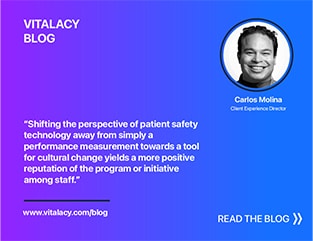
Studies show that overall, nurses are better at complying with hand hygiene requirements in clinical settings than physicians are. Both types of clinicians fall short of the 100-percent compliance mark as a group, though, and factors such as burnout can lead nurses to decrease hand-washing compliance on a regular basis.
Nurse and Physician Hand Hygiene by the Numbers
According to one study published by The Lancet Infectious Diseases, around 71 percent of nurses are compliant with hand-washing guidelines. The research was conducted at pilot sites in numerous countries before any hand hygiene intervention programs were established. In contrast, only around 60 percent of doctors in the same pilot studies were compliant with hand-washing guidelines.
Why Are Nurses Naturally More Compliant with Hand Hygiene?
In a behavioral study on hand-washing compliance, researchers found a number of barriers for physician hand-washing compliance. Reasons doctors reported for not washing hands appropriately in a clinical setting included:
- Failure to remember to wash hands
- Feeling too rushed or carrying too high of a workload
- Not knowing where to access a sink or lack of easy access to a sink
- Empty soap or paper towel dispensers
- Broken soap dispensers
The study also noted that physicians may have a perception that their compliance with hand hygiene is better than it is, and that physicians as a group don’t always have active role models that display good hand-washing habits and techniques.
When you contrast these findings with barriers to hand-washing reported by nurses, there are some overlaps. Nurses aren’t 100-percent compliant either, and they do report feeling rushed or dealing with empty soap dispensers and other barriers.
However, the role a nurse often plays and his or her relationship with the work and facility can cause these barriers to be less of an inhibition. Nurses often staff the same area on a regular basis, whereas doctors may come and go from certain wards or floors. That makes it more likely nurses would be able to quickly address a supply problem or know where to access a sink. According to the same behavioral health study, nurses are also more likely to consider the safety of themselves and family members when factoring in the importance of hand hygiene.
Taking Steps to Ensure Clinical Hand-Hygiene Compliance
A study presented at the Association for Professionals in Infection Control and Epidemiology conference in 2016 noted that all clinicians were more apt to engage in appropriate hand hygiene when they were being observed by infection prevention nurses. In fact, total compliance when staff was observed by IP nurses was at 57-percent compared to 22-percent compliance when being observed by unknown volunteers.
But direct observation is no longer the gold standard for hand hygiene compliance oversight — and for good reason. Fifty-seven percent compliance isn’t a number to call home about, and even that improvement diminishes as soon as individuals are not being observed. It’s simply not sustainable to place IP nurses or other regulators in every location.
Luckily, there’s a new gold standard in hand hygiene compliance: A wearable device backed by an entire compliance and education system. Vitalacy’s hand hygiene compliance system tracks hand-washing engagement and quality, providing feedback both to the wearer and supervisory staff or the facility. Because it tracks the quality of each hand hygiene event, the system can’t be gamed.
At the same time, the goal isn’t to create a “big brother is watching” atmosphere for doctors and nurses. Instead, it’s to provide education and understanding so clinicians of all types can see exactly where their hand-washing compliance stands and how to improve it.
Tammy Hoyle is a retired nurse with over 35 years of experience in healthcare. During her career, Tammy worked primarily with spinal cord injury and dementia patients.
Request a demo of Vitalacy’s Automated Hand Hygiene Monitoring Solution today!
Author
-

Vitalacy is committed to reducing patient harm in healthcare through better hand hygiene and patient safety solutions. Bluetooth-enabled smart sensors and wearables help improve outcomes and Leapfrog Hospital Safety Grades.



